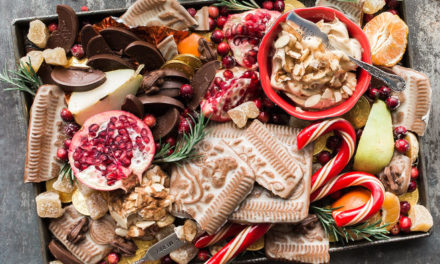The American Psychological Association ran a study designed to explore the effects of stress during the holidays, and found that women experienced a much more dramatic spike in stress levels over Thanksgiving, Hanukkah, and Christmas than men.
- When asked if their stress levels were higher than normal over the holidays, 44% of women said yes (as opposed to 31% of men).
- When asked if they felt able to relax over the holidays, only 25% of women said yes. In contrast, 41% of men, strongly agreed that they felt relaxed during the holidays.
- The APA also determined that in order to cope with stress, women most frequently turn to food for comfort (41%), and drinking as an escape (28%).
Says the APA, “Though there are not attitudinal differences between men and women in their sense of obligation towards family, there are strong behavioral differences between men and women. Women are much more likely to shoulder the work burden during family celebrations. During Thanksgiving, women are nearly twice as likely to report that they will cook (66 percent of women versus 35 percent of men), shop for food (52 percent of women versus 32 percent of men), and clean dirty dishes (70 percent of women, versus 41 percent of men). Men, on the other hand, are nearly twice as likely as women to report that they will watch football. (26 percent of women versus 46 percent of men).”
For any woman that has had to juggle holiday gift shopping, meal planning, decorating, hostessing duties, and coordinate a slew of end-of-the year holiday activities, the APA’s findings come as no surprise. The holidays, though at their core a time of family and togetherness, are also surrounded by a mad dash to get a host of chores done that typically aren’t a part of day-to-day normal life. (Thanksgiving hasn’t even happened yet, and I’m already so exhausted that I accidentally poured dog kibble in my daughter’s bowl this morning instead of cereal.)
In response to rising levels of holiday stress, magazines like Woman’s Day have published “quick fix” suggestions to help women cope with holiday stress. Their suggestions include sending e-cards instead of paper cards, stopping by the perfume counter while shopping to get a fragrance “mood boost,” and abandoning elaborate family traditions in favor of something more simple (like making pancakes for Christmas Eve, instead of an elaborate spread of appetizers). The Mayo Clinic also recently published holiday stress-relieving tips, which include deep breathing exercises, making holiday budgets, and planning ahead.
by





 Hi I’m Catherine, founder of Wine Women And Chocolate. Want to become a contributor for Wine, Women & Chocolate? Interested in sharing your unique perspective to a group of supportive, like-minded women?
Hi I’m Catherine, founder of Wine Women And Chocolate. Want to become a contributor for Wine, Women & Chocolate? Interested in sharing your unique perspective to a group of supportive, like-minded women?